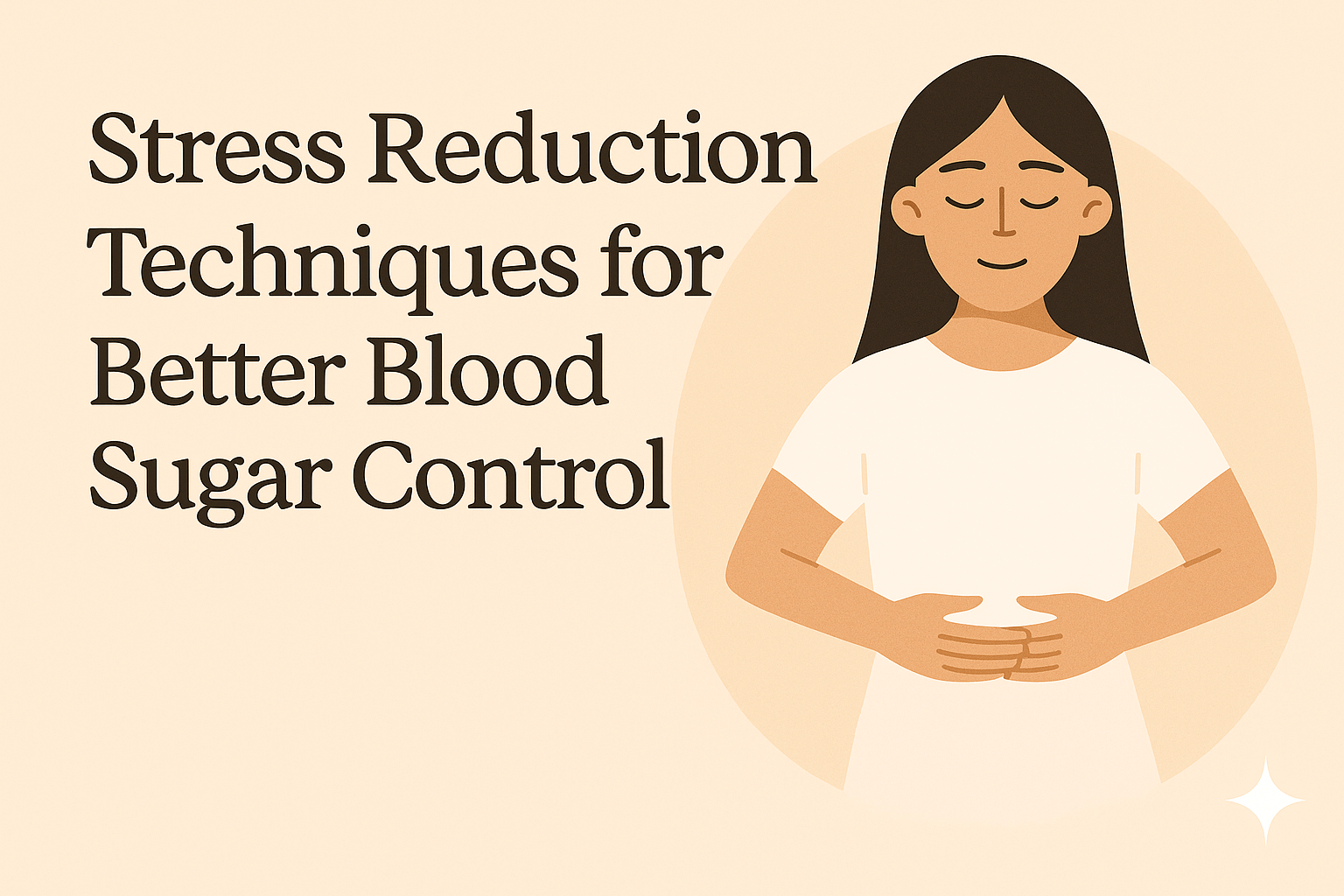Introduction
It’s Monday morning. You’ve barely had time to grab your keys, you’re rushing out the door, and your phone is already buzzing with emails. By noon, your shoulders feel tight, your mind is racing, and your energy is all over the place. Sound familiar?
We often think of stress as “just part of life.” But what if I told you that stress isn’t only affecting your mood — it’s directly influencing your blood sugar, energy, and long-term health?
The truth is, your body reacts to stress the same way it did thousands of years ago: by releasing hormones that raise blood sugar so you can “fight or flee.” Except now, the biggest threats we face aren’t wild animals — they’re traffic jams, work deadlines, and endless notifications.
The good news: relaxation isn’t a luxury. It’s a powerful tool to stabilize blood sugar, support your metabolism, and even improve weight management.

The Science Made Simple
When you’re stressed, your body releases cortisol — a hormone that triggers your liver to release stored glucose (sugar) into the bloodstream. This was useful for survival in the past, but in today’s world, it means:
- Higher blood sugar levels, especially if stress is constant.
- More cravings for comfort foods (hello chips and cookies).
- Increased risk of insulin resistance over time.
By managing stress, you help your body lower cortisol, stabilize blood sugar, and reduce those “emotional hunger” moments.
Real-Life Story: Daniel’s Wake-Up Call
Daniel, a 38-year-old graphic designer, always blamed his fatigue on “just being busy.” He was working long hours, drinking more coffee than water, and rarely giving himself a break. After a routine check-up, his doctor warned him about rising blood sugar levels.
Instead of jumping straight into a strict diet, Daniel started small: 10 minutes of deep breathing in the morning, short walks after lunch, and a nightly habit of turning off screens 30 minutes before bed.
Within weeks, he noticed more stable energy, fewer late-night cravings, and — surprisingly — better focus at work. Managing stress didn’t just calm his mind, it helped his body too.
Practical Ways to Relax and Support Blood Sugar
1. Breathe Deeply
It sounds simple, but slow breathing lowers cortisol within minutes. Try this: inhale for 4 counts, hold for 4, exhale for 6. Repeat for 2–3 minutes.
2. Move Your Body (Without Pressure)
You don’t need a hardcore workout. A 15-minute walk, light yoga, or even stretching at your desk can release tension and help muscles use glucose more effectively.
3. Create a “Mini-Moment” Ritual
Stress piles up when we never pause. Pick one daily activity that signals relaxation: brewing tea, reading a few pages of a book, or stepping outside for sunlight.
4. Disconnect to Reconnect
Endless screens = constant stimulation. Even 20 minutes away from your phone can calm your nervous system. Try leaving it in another room while you cook or eat dinner.
5. Sleep Like It Matters (Because It Does)
Poor sleep drives cortisol higher. Create a simple routine: dim the lights, shut off devices, and aim for 7–8 hours of rest. Your blood sugar (and mood) will thank you.
Why Relaxation Is the Missing Piece
So many people focus only on diet and exercise for health. But stress management is often the missing piece. When you lower cortisol, you’re not only protecting your mental health, you’re helping your body process sugar more efficiently, reduce cravings, and build resilience.
Think of it as a triangle:
- Food fuels your body.
- Movement burns energy.
- Relaxation resets your system.
Without the third piece, the other two don’t work as smoothly.
Conclusion
Stress may be invisible, but its impact on your blood sugar and health is real. The solution isn’t to eliminate stress (that’s impossible), but to build small, daily practices of relaxation.
You don’t need a silent retreat or hours of meditation. You just need a few intentional minutes each day to breathe, move, and unplug. Over time, those moments compound — giving you steadier energy, calmer cravings, and better overall health.
👉 The next time life feels overwhelming, remember: taking a breath isn’t wasting time. It’s healing your body from the inside out.

Sophia Martinez has a Master’s degree in Public Health and over 10 years of experience in digestive wellness and preventive health. She enjoys sharing practical, science-backed tips that readers can apply in everyday life. Sophia believes that better digestion and less stress are key to long-term well-being.

